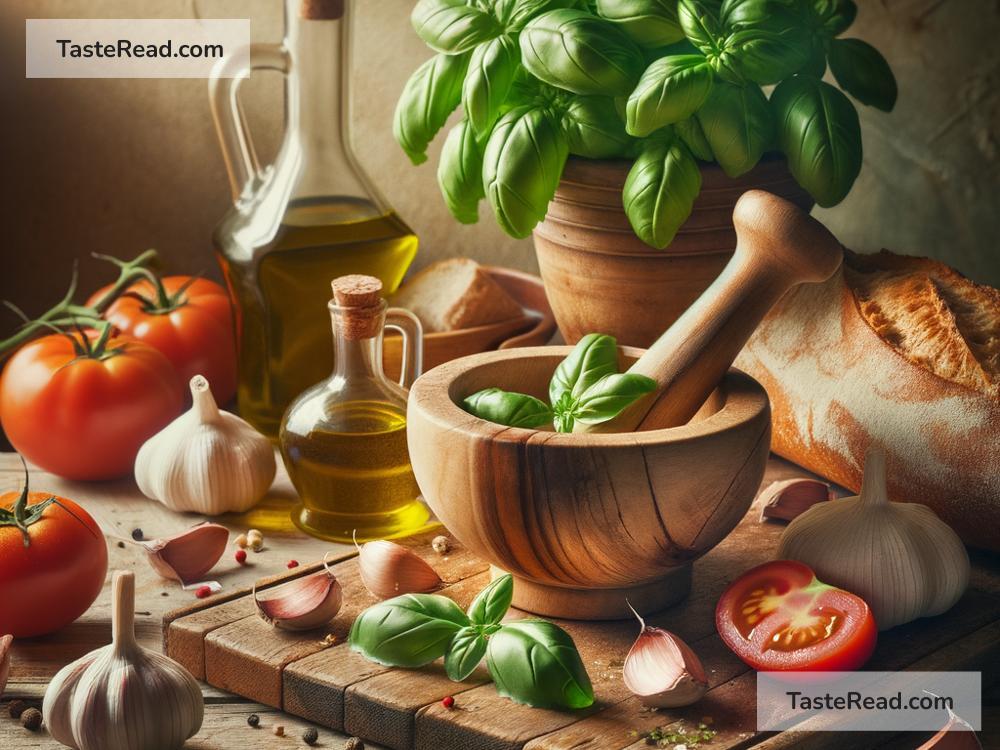Celebrating Aromatic Basil Infusions in Mediterranean Kitchens
Mediterranean kitchens are known for their vibrant flavors, fresh ingredients, and aromatic herbs. Among these, basil stands out as a favorite. With its distinct fragrance and versatile use, basil adds life to countless dishes across the Mediterranean region. From Italy to Greece and beyond, basil infusions have become a key part of Mediterranean cooking, offering not just flavor but also a touch of tradition and health benefits. Let’s dive into the beauty of basil and learn how it is celebrated in Mediterranean kitchens.
What Makes Basil Special?
Basil is a green, leafy herb that belongs to the mint family. One of its main characteristics is its sweet, slightly peppery aroma. There are many types of basil, but sweet basil tends to be the most common variety used in Mediterranean cooking. This herb is packed with essential oils that release a lovely scent and flavor when chopped, crushed, or infused.
In terms of nutrition, basil is a powerhouse. It contains Vitamin K, Vitamin A, calcium, and antioxidants. Its compounds are known to reduce inflammation and help improve digestion. No wonder this herb has been cherished in cooking for centuries.
Basil in Mediterranean Kitchens
Mediterranean cooking places great importance on fresh and fragrant ingredients, and basil is often a star of the show. From salads to sauces and drinks, basil is used in countless ways to brighten up dishes. One of the reasons why this herb is so appreciated is how easily it pairs with other staples of Mediterranean cuisine—like olive oil, tomatoes, garlic, and lemon.
One of basil’s most iconic uses is in pesto, a beloved Italian sauce. Pesto is made by blending fresh basil leaves with pine nuts, garlic, Parmesan cheese, and olive oil. The result is a creamy, fragrant sauce that can be used on pasta, spread on bread, or drizzled over roasted vegetables. The vibrant green color and bold flavor of pesto make it a Mediterranean classic.
In Greece, basil is celebrated as well, often added to dishes like stuffed tomatoes and cucumbers. It complements the variety of fresh vegetables and cheeses that are prevalent in Greek cooking. No summer salad is truly complete without a few torn basil leaves added on top.
The Art of Basil Infusions
Infusion is one of the simplest and most delightful ways to enjoy basil. By steeping basil leaves in water, oil, or other liquids, you can create infused products that carry the herb’s aromatic flavor. The process requires only fresh basil, patience, and some creativity. Here are some popular ways to infuse basil in Mediterranean kitchens:
-
Basil-Infused Olive Oil
Olive oil is central to Mediterranean cooking, and infusing it with basil adds another layer of flavor. To create basil-infused olive oil, simply combine fresh basil leaves with good-quality olive oil and let it sit for a few days in a sealed jar. The result is a fragrant oil that can be drizzled over grilled fish, salads, or pasta dishes. Basil-infused olive oil also makes a wonderful gift for food lovers. -
Basil-Infused Vinegar
Basil can be added to white wine or balsamic vinegar to create flavored vinegar perfect for dressings and marinades. Simply place basil leaves in a bottle of vinegar and allow them to steep for a couple of weeks. The rich tangy flavor combined with basil’s aroma makes this infusion a Mediterranean favorite. -
Basil-Infused Drinks
Refreshing basil-infused water or lemonade is ideal for hot Mediterranean summers. Throw fresh basil leaves into a jug of water or mix them with lemon juice, honey, and sparkling water for a homemade basil lemonade. The result is a cooling drink with a hint of herbal sweetness. Basil pairs beautifully with other fruits like strawberries or peaches, making it ideal for experimenting with infused beverages. -
Herbal Teas
Basil’s soothing properties make it a perfect ingredient for herbal teas. Mediterranean kitchens use basil in hot infusions, often paired with chamomile or mint. Basil tea can aid digestion and calm stress, making it a flavorful yet functional choice.
Bringing Basil Into Your Cooking
Celebrating basil in your own kitchen is easy. Try growing your own plant—it thrives in warm climates and sunny windowsills, requiring minimal care. Freshly picked basil always tastes better and has a stronger aroma compared to dried basil.
When cooking with basil, remember that it’s best to use it fresh and add it toward the end of the cooking process to preserve its flavor. For example, when making pasta sauce, add basil leaves just before serving rather than cooking them for long periods. Torn or chopped basil enhances the dish’s flavor more effectively than whole leaves—instead of cutting the leaves with a knife, tear them with your hands to preserve the essential oils.
Basil: A Simple Yet Powerful Ingredient
Basil is more than just an herb—it is a way to connect with Mediterranean culture and cooking traditions. Its versatility allows cooks to experiment with oils, vinegars, sauces, drinks, and more. Whether you’re enjoying basil-infused olive oil with crusty bread or sipping a basil lemonade by the sea, basil brings a touch of the Mediterranean charm to every meal.
So, the next time you cook, let basil take center stage. Relish its aroma, play with its infusions, and celebrate this beloved herb that has enchanted Mediterranean kitchens for generations. You’ll likely discover that sometimes the simplest ingredients make the most unforgettable meals.


